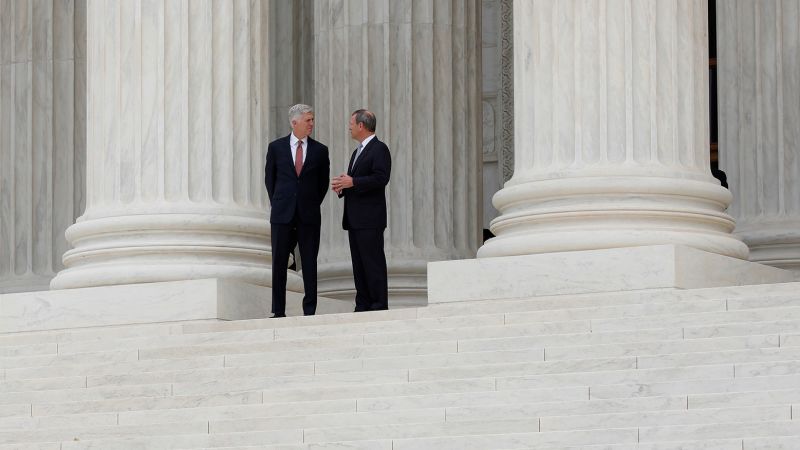
The Supreme Court’s decision to address transgender sports bans places conservative Justices John Roberts and Neil Gorsuch at the center of a highly anticipated legal battle. This development follows their involvement in previous cases concerning LGBTQ rights, where their positions were notably reserved.
On Thursday, the court agreed to hear appeals concerning laws in West Virginia and Idaho that prohibit transgender girls and women from participating in women’s sports teams. This comes after the court’s recent ruling upholding Tennessee’s ban on puberty blockers and hormone therapy for transgender youth, a decision that avoided broader questions about transgender rights.
Background and Legal Context
This marks the second consecutive year the Supreme Court will tackle a contentious legal issue involving young transgender Americans. The political climate surrounding these cases is charged, fueled in part by conservative states and former President Donald Trump’s rhetoric. The upcoming cases challenge the legality of excluding transgender athletes from sports teams aligning with their gender identity, a topic that has sparked national debate.
In the previous ruling, Chief Justice Roberts, writing for the majority, upheld Tennessee’s law by focusing on its age and medical procedure classifications, sidestepping the question of discrimination against transgender youth under the 14th Amendment’s equal protection clause.
Expert Opinions and Judicial Perspectives
Legal experts suggest that the sports cases will present discrimination issues that are harder for the court to avoid. Steve Vladeck, a CNN Supreme Court analyst and Georgetown University Law Center professor, emphasized the critical role of Roberts and Gorsuch in these decisions.
“Everything is going to come down to where Roberts and Gorsuch are,” Vladeck stated.
Suzanne Goldberg, a Columbia Law School professor, noted the court’s previous reluctance to label Tennessee’s law as discriminatory, highlighting the significance of the upcoming cases in directly addressing these issues.
“The new cases squarely present the discrimination questions in ways that will be hard to avoid,” Goldberg remarked.
The Role of Justices in Shaping Outcomes
Justice Gorsuch, known for authoring the landmark 2020 Bostock v. Clayton County decision, which extended federal protections to transgender workers, did not elaborate on his stance in the Tennessee case. His silence leaves room for speculation on how he might approach the sports cases.
John Bursch, a senior counsel at the conservative Alliance Defending Freedom, predicts that both Roberts and Gorsuch will support state bans on transgender sports participation, given their previous votes.
“If they were in agreement that Tennessee’s law did not discriminate based on gender identity, I would assume that both of them would come to the same conclusion here when it comes to sports,” Bursch commented.
Meanwhile, Justices Amy Coney Barrett and Brett Kavanaugh have expressed skepticism about extending anti-discrimination protections to transgender individuals in sports, with Barrett highlighting regulatory concerns and Kavanaugh questioning the implications for women’s sports.
Implications and Forward-Looking Analysis
The Supreme Court’s decision will have significant implications for transgender rights and the broader legal landscape. The cases involve young athletes like Becky Pepper-Jackson in West Virginia and Lindsay Hecox in Idaho, who have challenged the bans as discriminatory under federal law and the Constitution.
As the court prepares to hear arguments, state officials in West Virginia and Idaho have lauded the opportunity to defend their laws, while advocates for transgender athletes argue that these bans are harmful and discriminatory.
The Supreme Court is expected to hear the cases later this year or in early 2026, with a decision anticipated by June. This ruling will likely set a precedent for how transgender rights are treated in the context of sports and beyond.




